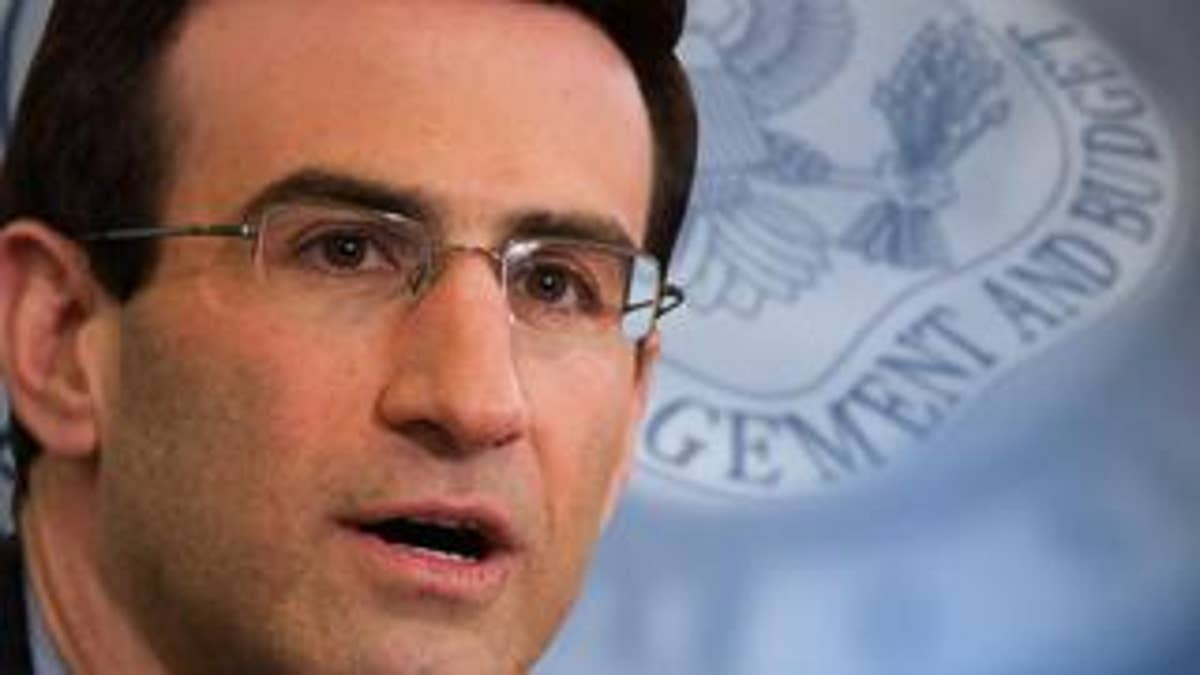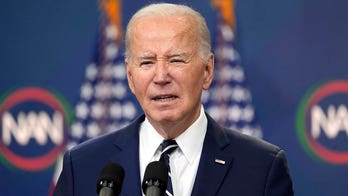
President Obama's budget director on Sunday described a House bill on health care reform as "deficit neutral" even though it includes Medicare payments to doctors that would put the bill $240 billion in the hole over a decade.
Office of Management and Budget Director Peter Orszag insisted that Obama won't sign any health care reform that isn't paid for, but also said the legislation doesn't take into account savings that will be achieved in other bills to come.
Democrats say physician Medicare payment reductions that cause the $240 billion deficit in the bill, will be dealt with in upcoming "Paygo" legislation. Paygo, which requires government to pay for what it purchases, and not rely on deficit spending, hasn't passed the House but is likely to do so.
"The payments to physicians is in the legislation, and that is the only reason that the bill shows a deficit. Once you take that part out, the bill is deficit neutral," Orzsag told "FOX News Sunday," noting that reductions are "sort of already baked in to our fiscal trajectory" for future spending.
The Congressional Budget Office, Congress' number crunchers, angered Democrats last week when it showed that the House bill now on the table to institute nationalized health insurance, is unsustainable.
The CBO calmed nerves when it issued a second report late Friday that says adjusting the totals to reflect a 20 percent reduction in Medicare payments to physicians would save the country $6 billion over a decade.
Orszag, who formerly headed the CBO, said the budget agency also didn't account for other estimated future savings.
"There are additional steps that are necessary to make it even better than that over the long term, and I think the single most important thing is this proposal that we have for an independent commission to help bring down costs over the long haul," he added, noting the commission would be "setting reimbursement rates and moving towards a higher quality system."
But expanded government-provided health insurance to cover the estimated 50 million people in the United States without insurance will require some to pay additional taxes. One proposal has incomes over $280,000 for single payers and $350,000 for families coughing up 5 percent of their income for the additional costs.
Combined with state and local taxes, that Americans in 39 of the 50 states would have tax rates over 50 percent. Orszag said that additional tax should hit about 1 to 2 percent of income earners. He added that the president would like to include a revenue proposal that would limit the rate at which deductions could be itemized but Obama does not favor taxing employer-provided health insurance benefits.
But the chance of Congress getting health care reform legislation passed this year is growing increasingly slim. Congress takes a summer powder on Aug. 7. Obama had hoped to have legislation passed by then. But even his Health and Human Services Secretary, Kathleen Sebelius, said Sunday the bill in the House is not likely to be the final product.
The Senate also is struggling over various versions. Sen. Judd Gregg, R-N.H., the ranking member of the Senate Budget Committee, said Republicans have voted lockstep against any legislation "because it's not reform."
"The two bills that have been voted on so far are the Kennedy bill coming out of the Health Committee, which ... was a party-line bill because that bill is basically your old-fashioned expand the government, let's take over the system approach, and the House bill, which was even worse," Gregg said.
"And basically, both of those bills lead to putting the bureaucracy between you and your doctor, and I believe they lead to delay and rationing in the end."
Gregg said one bipartisan measure sponsored by Sens. Ron Wyden and Robert Bennett, "would get where we need to go."
That legislation would "cover everybody and bend the out-year costs of health care without going down the road of this massive expansion of the government role in health care and the massive increase in costs which are proposed in the two bills that have been voted on," Gregg said on "FOX News Sunday."
He added that reducing reimbursement rates to doctors and eliminating deductions on expensive health care plans would be two ways to raise money to pay for universal health care.
"Regrettably, neither of the proposals that are now pending in the Congress do either of those things," Gregg said.
Click here for more FOXNews.com coverage of health insurance.




